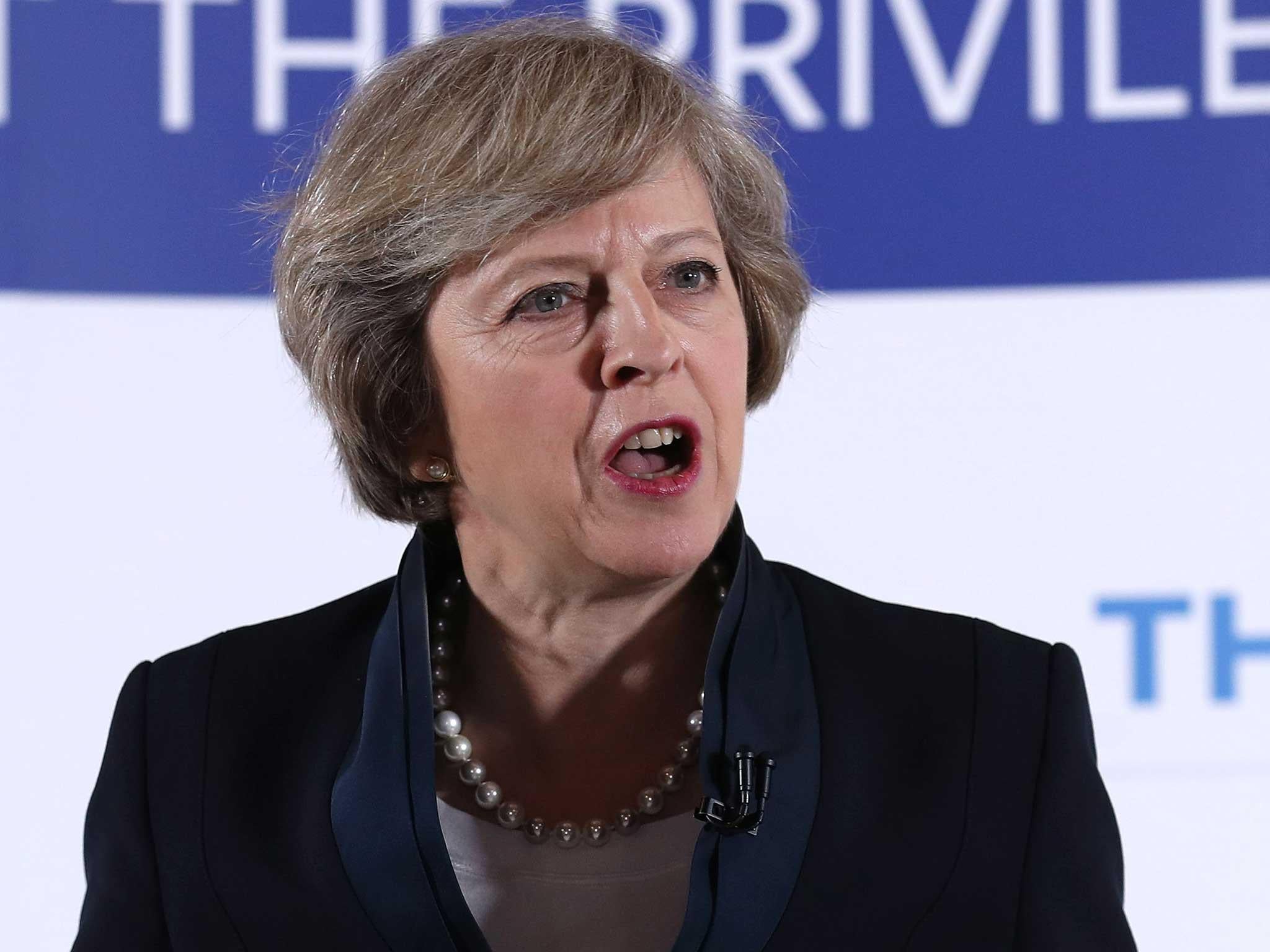Theresa May: What the MP set to become Prime Minister believes on human rights
The Home Secretary’s voting record includes a consistent commitment to repealing human rights laws and those preventing climate change

Your support helps us to tell the story
From reproductive rights to climate change to Big Tech, The Independent is on the ground when the story is developing. Whether it's investigating the financials of Elon Musk's pro-Trump PAC or producing our latest documentary, 'The A Word', which shines a light on the American women fighting for reproductive rights, we know how important it is to parse out the facts from the messaging.
At such a critical moment in US history, we need reporters on the ground. Your donation allows us to keep sending journalists to speak to both sides of the story.
The Independent is trusted by Americans across the entire political spectrum. And unlike many other quality news outlets, we choose not to lock Americans out of our reporting and analysis with paywalls. We believe quality journalism should be available to everyone, paid for by those who can afford it.
Your support makes all the difference.Theresa May is about to become Prime Minister after a career of opposing legislation that guarantees equality and human rights.
The MP and home secretary has repeatedly indicated that she would look to repeal laws that guarantee human rights in Britain. She also has a record of voting against equality legislation and measures that prevent climate change.
Most recently, at the end of May, Theresa May voted in favour of repealing the Human Rights Act. She has repeatedly criticised human rights legislation for limiting the powers of government – a position that has led to criticism even from fellow cabinet members.
In 2013, Ms May voted against a law that would have made it illegal for people to discriminate on the basis of caste.
She was absent for votes on human rights protections in the immigration bill in 2014 and for another bill that looks to repeal the human rights act, in 2012.
Since Ms May has been in the home office for much of her recent career, her foreign policy decisions have received less focus. She has largely voted in line with her colleagues on those decisions – primarily supporting intervention overseas and with a mixed record on further integration with the European Union.
She voted consistently for going to war in Iraq, as well as the deployment of UK troops in Syria, Iraq, Libya and Afghanistan.
Join our commenting forum
Join thought-provoking conversations, follow other Independent readers and see their replies
Comments